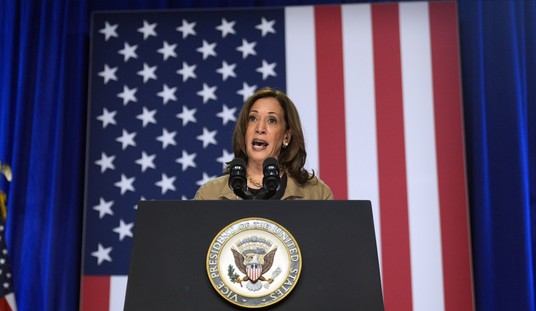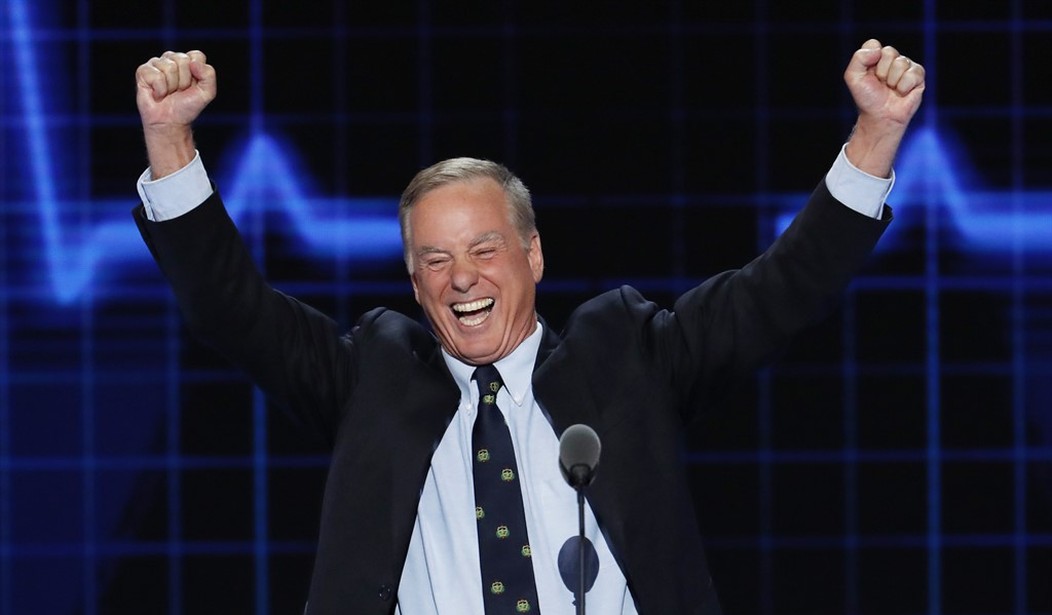At the UN General Assembly this week, our president delivered a milquetoast defense of our ally. Half a century ago, Daniel Patrick Moynihan did the opposite.
For the last
week, hordes of diplomats have been wining and dining their way around
Manhattan, where they have been quartered for the United Nations General
Assembly. Anyone familiar with this annual circus could be forgiven for tuning
out.
So it might
have escaped your notice that multiple UN grandees have availed themselves of
this illustrious opportunity to demonize the world’s sole Jewish state. Israel
is battling Hamas in Gaza and Hezbollah in Lebanon, two terrorist groups that
will not rest until they have obliterated a nation America has always counted
among its closest allies.
And yet,
this week, very few Americans seemed to bat an eyelid when a self-professed
democratic leader—Turkey’s president, Recep Tayyip Erdoğan—said, on U.S. soil, on the first day of the General
Assembly: “Just as Hitler was stopped by the alliance of humanity 70 years ago,
Netanyahu and his murder network must also be stopped by the alliance of
humanity.”
A
historically illiterate, deeply offensive comparison between the architect of
the genocide of European Jewry and the leader of the world’s only Jewish state.
How could Erdoğan justify saying such a thing in a room full of global
leaders?
Sadly, it’s
an easy question to answer. Thugs and autocrats and antisemites have always
viewed the United Nations as a cudgel meant to batter the West. Just as every
country on Earth whose name includes “the people’s republic” is neither for the
people or a republic, every UN member that uses its membership to decry the
deaths of innocents in Gaza—but not Syria, Saudi Arabia, Yemen, Iran, North
Korea, China, or anywhere else—could not care less about innocents. This is
posturing pure and simple, and it’s meant to elevate Erdoğan’s standing among
his fellow bottom-feeders while cornering Israel, undermining its raison
d’être, chipping away at the founding ideals of the United Nations.
Unfortunately,
the American president lacks the fortitude or moral vision to say as much. In
his remarks in New York, Joe Biden offered up a potpourri
of platitudes that will move no one: “Full-scale war is not in
anyone’s interest,” “a diplomatic solution is still possible,” and so forth.
To imagine
what might have been, we may recall a very different Irish Catholic Democrat,
who, 49 years ago, gave a very different speech at the United Nations. One that
robustly defended Israel. One that condemned the organization’s treatment of
the Jewish state. One that articulated the values of democracy and pluralism
and tolerance, which so many Western leaders now seem congenitally incapable of
articulating.
I refer, of
course, to the late, great Daniel Patrick Moynihan—who was the U.S. ambassador
to the UN during one of its most egregious betrayals of Israel.

It was a
rainy day in New York, November 10, 1975, and the UN General Assembly was
gathered to vote on Resolution 3379, which called for the “elimination of all
forms of racial discrimination.”
At the time,
much of the Middle East was still smarting from Israel’s victory in the Yom
Kippur War of 1973. Then—as now—many leaders saw the UN General Assembly as an
opportunity to wage diplomatic warfare against the Jewish state. These included
a man renowned for his flagrant abuse of human rights, the Ugandan despot Idi
Amin, who once said Hitler “was right to burn six million Jews.”
Ahead of the
General Assembly, Amin’s was one of the loudest voices in a coalition that had
conspired to add a grim clause to Resolution 3379: “Zionism is a form of racism
and racial discrimination.”
Moynihan had
been appointed ambassador to the UN by President Gerald Ford only a few months
earlier, in June 1975. But he hit the ground running, lobbying furiously
against this moral depravity, speaking out against it at every opportunity.
At the time,
there was no question that America would vote against the resolution, and yet
Moynihan’s staunch opposition to it wasn’t shared by all in the Ford
administration. Secretary of State Henry Kissinger feared Moynihan was
overdoing it. Before the General Assembly, Kissinger instructed a colleague to
tell Moynihan that he needed to get approval for any remarks he planned to
make.
“Tell him
these are direct instructions from me,” Kissinger said.
But by the
time the delegates had arrived in New York, he knew it was too late: Most
member-states planned to vote for the resolution. UN Secretary-General Kurt
Waldheim—who the world would later discover had taken part in Nazi war crimes—threw a party in Idi Amin’s honor. (In
1987, the United States barred Waldheim from entering the
country.)
Meanwhile,
Moynihan prepared his speech, with the help of his friend Norman Podhoretz,
editor-in-chief of Commentary magazine. He ignored Kissinger’s
instructions.
When, on
November 10, the delegates convened to vote, the Israeli ambassador to the UN
reminded those assembled what was at stake. “For us, the Jewish people, this
resolution, based on hatred, falsehood, and arrogance, is devoid of any moral
or legal value,” said Chaim Herzog—before tearing the resolution in two.
Nevertheless,
72 countries voted for Resolution 3379, 35 voted against it—including the
United States—and 32 abstained.
When the
result was announced, Moynihan rose to speak.
“The United
States rises to declare before the General Assembly of the United Nations, and
before the world, that it does not acknowledge, it will not abide by, it will
never acquiesce in this infamous act,” he said.
He repeated
the line almost verbatim at the end of the speech.
“As this day
will live in infamy, it behooves those who sought to avert it to declare their
thoughts so that historians will know that we fought here, that we were not
small in number—not this time—and that while we lost, we fought with full
knowledge of what indeed would be lost.
“What we
have here is a lie—a political lie of a variety well-known to the twentieth
century, and scarcely exceeded in all that annal of untruth and outrage.
“The
terrible lie that has been told here today will have terrible consequences. Not
only will people begin to say—indeed they have already begun to say—that the
United Nations is a place where lies are told, but far more serious, grave, and
perhaps irreparable harm will be done to the cause of human rights
itself.”
The backlash
to Moynihan’s speech was swift.
“But we are
liars, 72 liars?” thundered Saudi representative Jamil Baroody. “God help any
candidate in this country who is not supported by the Zionists!”
Kissinger
was incensed. “I will not put up with any more of Moynihan. I will not do it,”
he vowed the following day.
And yet
ordinary Americans across the political spectrum celebrated Moynihan’s bold
support of Israel. The ambassador had worked in both Democrat and Republican
administrations, for both Kennedy and Nixon, and he had hit upon a moral stance
with bipartisan support.
In his
book Moynihan’s Moment, Gil Troy writes that though this was
a moment of “bitter partisan division, with both the Democratic and Republican
parties purging their moderates and veering to the extremes,” Moynihan’s
“campaign against Resolution 3379 set a new template for American nationalism,”
supported— “surprisingly”—by those on both the left and the right.
Democratic
senator Frank Church wrote to Moynihan saying: “You have done what you said you
would do: Speak out for human rights and the democratic tradition, and you have
done so with great force and dignity.”
“Keep up the
wonderful work,” wrote Republican senator Barry Goldwater. “It’s time that
somebody from the United States started talking as you have been talking.”
Moynihan
resigned his post in February 1976—less than a year after taking the job. But
he left a popular man. In November of that year, New York voters elected him to
the Senate. There he would serve for nearly a quarter of a century.
Resolution
3379 lasted for 16 years, until December 1991, when the General Assembly
revoked the declaration that Zionism was racism.
It is not a
coincidence that this happened at the same moment that the Soviet Union was in
a state of collapse—when Americans, under the leadership of men like George
H.W. Bush in the White House and Daniel Patrick Moynihan in the Senate,
understood who we were, what we stood for, what hills we had no choice but to
die on.
That
American leaders are unwilling, or unable, in 2024, to offer up anything beyond
the blandest of clichés in defense of our closest ally in the Middle East does
not bode well for America’s own sense of self.
https://www.thefp.com/p/things-worth-remembering-daniel-patrick-moynihan-un













